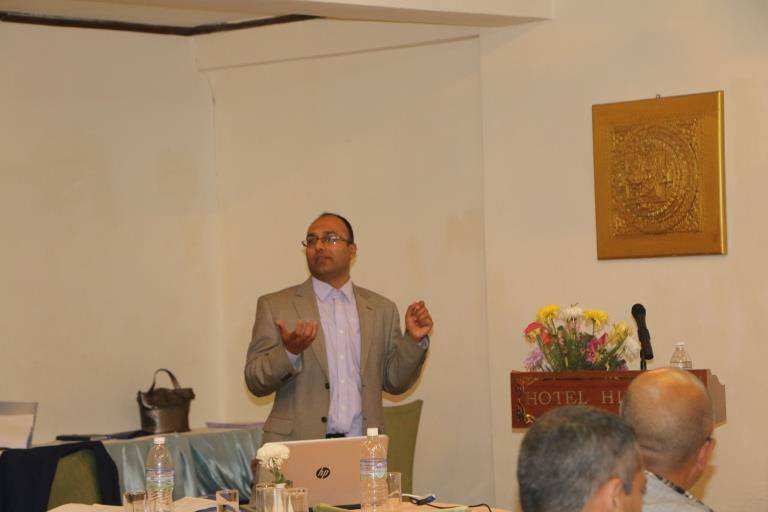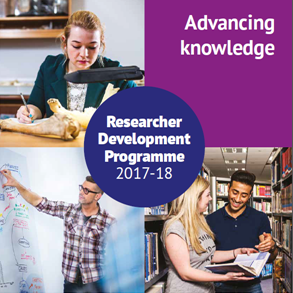Parliament is now in recess until 4 September. But it has been a busy week nonetheless
Research
2020 Funding Guarantee – This week the Treasury confirmed that funding through EU programmes will be guaranteed by the UK Government until the end of 2020, even if Brexit results in No Deal. Previously the Government had made the guarantee until March 2019, it has now been extended. It also means that funding secured before the end of 2020 will be guaranteed for its full duration – continuing to be paid until the project runs to its scheduled completion. The Government is keen that applicants continue to bid for funding during the turbulent negotiation period and that UK organisation continue to benefit from funding post-Exit. It provides security for funding secured through the European Regional Development Funding and Horizon 2020 projects.
Elizabeth Truss, The Chief Secretary to the Treasury, said:
- “The government is continuing to work towards a deal with the EU and under the terms of the implementation period the UK will continue to participate in the programmes financed by the current EU Budget until their closure. As a consequence, the Treasury is extending the government’s guarantee of EU funding to underwrite the UK’s allocation for structural and investment fund projects under this EU Budget period to 2020. The Treasury is also guaranteeing funding in event of a no deal for UK organisations which bid directly to the European Commission so that they can continue competing for, and securing, funding until the end of 2020. This ensures that UK organisations, such as charities, businesses and universities, will continue to receive funding over a project’s lifetime if they successfully bid into EU-funded programmes before December 2020. In addition to this guarantee, the government will establish a UK Shared Prosperity Fund. The fund will tackle inequalities between communities by raising productivity, especially in those parts of our country whose economies are furthest behind. A departmental Minute providing full details of the liabilities associated with this announcement has been laid in the House of Commons.”
Philip Hammond, Chancellor of the Exchequer, said:
- “We continue to make positive steps towards getting the best possible deal with the EU – one that works for the whole of the UK. The guarantee we are making today however means that, even in the unlikely event of a no-deal, our businesses, universities and local authorities can be confident that they will continue to receive the funding they successfully bid for from any EU programme.”
For those with a keen interest the official statistics detailed the UK’s participation in Horizon 2020 are available here. Commenting on the statistics Layla Moran (Lib Dem Education Spokesperson) said:
- “As these figures show, UK universities have benefited from Horizon 2020 funding to the tune of hundreds of millions of pounds – helping to keep them at the forefront of innovation and research, and rated among the best in the world.”
REF 2021
The draft guidance and criteria detailing the arrangements for REF 2021 have been released for consultation with the sector. The consultation can be viewed here. The press release on the consultation states:
- The four UK funding bodies want to ensure that equality and diversity continue to be supported within the REF and are embedded throughout the exercise. The arrangements for taking account of the effect of staff circumstances on productivity during the assessment period are a key part of ensuring this, and views are invited through the consultation on the proposals set out in the Guidance on submissions. The proposals seek to address concerns raised during the 2016 consultation and the detailed development of measures about how staff circumstances can best be recognised in the new submission process.
BU will be responding to the consultation.
Refreshed research relationship with India – Sam Gyimah co-chaired the Science and Innovation Council meeting in India which resulted in new funding and closer working for nuclear and health, and renewed an agreement on environmental challenges, arts and humanities. The Council was originally formed to strengthen Britain and India’s science, technology and innovation relationship. This year’s meeting focussed on the rapid growth of the UK and India’s joint research portfolio and recognised the strength of the bilateral relationship – India as the fastest growing research power and the UK as a major, high-quality research power. The bilateral research collaboration has seen exponential growth from £1 million in 2008 to £400 million by 2021.
Indian Minister for Science and Technology, Dr Harsh Vardhan said: Technology Cooperation is the key to the future. India and the UK should work on sustainable, affordable, and low energy consumption technologies.
Sam Gyimah said:
- The UK believes in the power of research and development to tackle global challenges and improve people’s lives for the better. India is the fastest rising research and innovation power in the world, and so I’m excited by the huge potential for enhanced collaboration as we support high-quality, high-impact research that changes lives.
Brexit White Paper
The Brexit White Paper Legislating for the Withdrawal Agreement between the United Kingdom and the European Union was published. The White Paper confirms that the EU (Withdrawal Agreement) Bill will:
- be the primary means by which the rights of EU citizens will be protected in UK law;
- legislate for the time-limited implementation period; and
- create a financial authority to manage the specific payments to be made under the financial settlement, with appropriate Parliamentary oversight
There are specific mentions to trialling immigration for staff and students, recognising professional qualifications, and Horizon Europe.
2A: Rights related to residence (p 12)
- Further to the Statement of Intent on the EU Settlement Scheme published on 21 June 2018, the Home Office laid before Parliament on 20 July 2018 the Immigration Rules 34 for a private beta phase, involving the EU citizen employees and students, who choose to take part, of 12 NHS Trusts and three Universities in the North West of England. This will enable the Home Office to test the relevant processes for the Scheme before it is rolled out on a phased basis from later this year. The Scheme will allow individuals to gain immigration status in UK law. This status will not affect in any way the rights of EU citizens and their family members under the free movement directive which will continue to apply during the implementation period. Other aspects of the agreement will be delivered through administration and do not require legislation, such as the commitment for forms to be “short, simple, [and] user friendly”35 which will be implemented through the Home Office’s streamlined digital application process for the EU Settlement Scheme.
2C: Mutual recognition of professional qualifications (p 13)
- As set out in the Government’s recent White Paper on the future relationship, the UK has proposed that, after the implementation period, there should be a system for the mutual recognition of professional qualifications, enabling professionals to provide services across the UK and the EU. This system would be broad in scope, covering the same range of professions as the Mutual Recognition of Qualifications Directive. These arrangements will be provided for, as necessary, in separate legislation. The recognition of professional qualifications is devolved in Scotland, Wales and Northern Ireland, except where the regulation of the profession is reserved to Westminster. As set out above, the UK Government is committed to working closely with the devolved administrations on these matters.
4A: The scope of the financial settlement (p 29)
- The financial settlement does not cover any costs that might be associated with the UK’s future relationship with the EU, as these will be part of our future relationship. For example, as the recent White Paper on the future relationship set out, there are some specific European programmes in which the UK may want to participate, such as Horizon Europe. If so, and this will be for the UK to decide, it is reasonable that an appropriate contribution should be made. These decisions are subject to negotiations on our future relationship with the EU, and future decisions of Parliament.
Participation in the European Union annual budgets in 2019 and 2020 (pp. 31)
- Under the financial settlement, the UK will contribute to the EU’s budget in 2019 and 2020, which covers the implementation period following the UK’s withdrawal. The UK will also benefit from the implementation of the budget as if it had remained a Member State over this period.101 This means that the UK will continue to draw advantages from the normal management of projects and programmes funded through the current Multiannual Financial Framework until their closure, whether they are managed by the UK Government (such as the European Regional Development Fund) or directly allocated to beneficiaries from EU institutions (such as Horizon 2020).
Unconditional Offers
With exam results looming unconditional offers hit the press, leading to an inevitable link to standards – and hence to grade inflation. There is a lot to think about, moreover will this year’s admissions cycle bring the whole system into question?
Mary Curnock Cook has written a blog on HEPI suggesting that VCs should agree not to use them (is that an anti-competitive arrangement, which the CMA might have something to say about?)
And Nick Hillman has written a blog pointing out a number of things that commentators often miss when discussing this. highlights below
- The autonomy of universities over whom to admit is enshrined in primary legislation. ..This means the room for action on restricting unconditional offers is strictly limited without a change to the law. …
- Moving to a system of post-qualification admissions, as exists in other countries, may have some advantages. I…. But, unless post-qualification admissions were to be accompanied by a minimum entry standard, it wouldn’t automatically tackle the issue of higher education institutions letting people in with lower grades …
- …one important driver is the falling birthrate 18 years ago…So of course institutions need to fight harder to recruit entrants. The tide will turn again, but not until the early 2020s onwards.
- There are different sorts of unconditional offers. Some do have strings attached…
- If, when the exam results roll in, an applicant feels they have accepted an unconditional place a little too rashly or has simply changed their mind, they can ask the institution that has given them an unconditional offer to release them …
- …if unconditional offers counter some of the negatives arising from our hyper-selective university entrance system by delivering more diverse student bodies, they can’t be all bad.
Our personal view @policyBU, for what it is worth, is that this is a bit of a storm in a teacup.
- It is strange that HE is set up as a market but then participants are criticised for competing – unless they are doing so unfairly. There is no criticism of scholarships, which also have potential to distort choices – I realise that they are incentives to do well at A level instead of incentives (perhaps) to “take the foot off the gas” but even so, they are potentially using fear of student debt to encourage students to make choices in a very similar way?
- It is also odd to insist that students are consumers who need to make educated choices and then pounce on one particular option because students can’t be trusted to make the right decision. We trust students, in our current system, to pick 5 institutions from many, choose amongst thousands of courses, make complex tactical decisions about which offers to accept so that they have a realistic firm and insurance choice (not easy if most institutions offer at your predicted grades), and then for many, navigate clearing, making tough decisions with little information under great pressure. So all of that, and then we say that they can’t be trusted to know that an unconditional offer is a marketing tool and factor that into their decisions. My tiny local focus group of 17-19 year olds said “we’re not stupid!”
- What are we worried about?
- Bad choices – remember they picked the institution that gave them the offer as one of their top 5. And as Nick Hillman says, they don’t have to go through with it.
- Drop in A-level grades – well maybe, for some. My tiny focus group said “A levels are hard. Taking the pressure off is a good thing”. I think we need evidence that this affects not just A-levels but drop-out rates, degree outcomes and employment outcomes before we decide how much this really matters. (And if we’re being really cynical, how much of this argument is driven by schools focussing on A level outcomes for their own league tables?)
- Sacrificing standards? Really? An UO made on the basis of predicted grades, even if they go on to get less good A level results as a result, doesn’t reduce university standards. The students have the same potential as they always had to do well at university. That seems to be an argument against contextual offers and UOs for reasons related to WP and wellbeing – which is a whole different argument (and not a good one).
- What did my tiny focus group think was the main problem? “It’s a bit annoying when people have one and you don’t. Especially if they go on about how they don’t need to work. But they are the annoying people anyway. It’s the parents who get stressed about it, because they think it’s not fair.”. So there.
The UCAS report on unconditional offers says:
Of the 58,385 students receiving at least one unconditional offer, the UCAS report says that “42,100 unconditional offers selected as firm in 2018, with a further 9,185 selected as insurance” – so assuming that students will only accept one unconditional offer, that means that 88% of students who receive at least one unconditional offer accept an unconditional offer as either firm or insurance – around 20% of all applicants. That suggests that it is working for universities – and that there is unlikely to be reduction in the number of such offers. Interestingly, it was also noted at ULT last week that there is a rise across the sector in the number of first applicants through clearing – so students who don’t apply in the usual cycle but wait until they have their grades. There were also reports last year of an increase in the number of students trading up in clearing when they did better than expected. So looking at all these factors together, there may be some truth in the suggestion that the current system is showing cracks and may not be sustainable in the long term.
The unconditional offers story is often linked to perceptions of falling standards, as you’ll see below: “bums on seats”, “sacrificing standards in a bid to attract students” and so on. Reform have retweeted their recent report “A degree of uncertainty” today. We wrote about this in a policy update on 22nd June.
Wonkhe have an article here:
- “The Department for Education’s “further information” on the ministerial quote says that: “The increase in unconditional offers runs the risk of admitting students who will not benefit from the courses. This rise risks students making the wrong decision for their futures, and is irresponsible of universities.” It could be true, but do we have the evidence? This is a case of anecdote driving policy without a full exploration of whether the problem is a significant one, or what the solutions might be.”
The BBC has the story:
- How have universities responded? Alistair Jarvis, chief executive of Universities UK, said: “While there has been a steady growth in the number of unconditional offers made, they still account for a small proportion (7.1%) of all offers made by universities. Unconditional offers, when used appropriately, can help students and ensure that universities are able to respond flexibly to the range of applicants seeking places. Universities UK will continue to work with Ucas to monitor trends and any impact unconditional offer-making might have on student attainment. It is simply not in the interests of universities to take students without the potential to succeed.”
- What does the government say? Universities Minister Sam Gyimah said: “The rise in unconditional offers is completely irresponsible to students, and universities must start taking a lead, by limiting the number they offer. Places at universities should only be offered to those who will benefit from them, and giving out unconditional offers just to put ‘bums on seats’ undermines the credibility of the university system. Along with the Office for Students, I am closely monitoring the number being issued and fully expect the regulator to take appropriate action. Unconditional offers risk distracting students from the final year of their schooling, and swaying their decisions does them a disservice – universities must act in the interest of students, not in filling spaces.”
- The University and College Union said unconditional offers made a mockery of exams and put students “under enormous pressure to make snap decisions about their future”.
- UCU general secretary Sally Hunt said: “The proliferation of unconditional offers is detrimental to the interests of students and it is time the UK joined the rest of the world in basing university offers on actual achievements instead of on guesswork. Unconditional offers can also encourage talented students to take their foot off the gas, instead of striving for excellence.” [UCU published a paper on this recently – see the policy update on 22nd June – but it was very light on the impact on student outcomes]
- The Association of School and College Leaders urged universities to stop the practice of unconditional offers.
The BBC story goes on
- UCAS says they have, traditionally, been offered to: mature students who have already achieved their qualifications to meet entry criteria, those applying for creative arts courses, after submitting a portfolio, or following a successful interview or audition. Artistic flair is likely to be viewed as a better indication of potential than traditional grades, reduce the stress some students may feel during the high-pressure exam period, supporting students with mental health difficulties, as one of the many different approaches universities use to attract and retain interest from students in a competitive marketplace.
This last one is the problem – seen by many – including the Minister, it seems – as a sinister way of eroding choice and protecting university finances to the detriment of students. But of course, as pointed out in the Wonkhe blog – that’s how a market works:
- [Ouch]: “Rather than cry foul at every new report, and every data release in the sector, the minister should think about why we’re here. And, if he doesn’t like the symptoms, spend more time looking at the causes. The marketisation of higher education has driven the growth in unconditional offers (among other less-than-ideal results): if you don’t like the consequences, offer something different. As for OfS, it could be a more effective regulator if it weren’t buffeted by the latest whim of a minister in search of a headline.”
The argument takes several forms all highlighted above:
- it’s anti-competitive and leads to poor choices AND falling standards in universities (headlined in the Telegraph and the Independent).
- the system is broken and we should make offers after grades are known e.g. the Guardian headline
- it damages student outcomes because they don’t try as hard at A level (all of the above)
The Daily Mail says: “Experts have previously said the rise is due to oversupply of university places following the lifting of the numbers cap. It means universities are in strong competition with each other, leading admissions tutors to use unconditional offers to snap up as many students as possible.”
Also the Sutton Trust have reposted their report from last year on admissions and access (Rules of the Game). The Sutton Trust report doesn’t mention unconditional offers, but summary says:
- In addition, students must make their course choices based on predicted rather than actual A-level exam grades. Evidence shows that the majority of grades are over-predicted, which could encourage students to make more aspirational choices. However, high attaining disadvantaged students are more likely to have their grades under-predicted than their richer counterparts. This could result in them applying to universities which are less selective than their credentials would permit.
- Almost 3,000 disadvantaged, high-achieving students – or 1,000 per year – have their grades under-predicted. Additionally, low attaining disadvantaged students are more likely to be matched to courses with similar students, while low attaining but advantaged students are far more likely to be overmatched: to attend courses with higher ability peers.
Apart from A level results, could it have an impact on longer term student outcomes (such as employment)? Does it in fact affect WP students disproportionately – either because they are predicted lower grades and so don’t get unconditional offers, or because they take a “safe” unconditional option rather than the one that is best for them (I’m trying to avoid the implication that a lower tariff university is a less good one, because that’s another minefield, as we’ve already explored elsewhere, but it is what we think the minister probably means when he talks about wrong decisions). For more context on this see our policy update on 6th July, on part-time and mature students.
Alistair Jarvis, Chief Executive of Universities UK, responded to the criticism of unconditional offer making by stating:
- “While there has been a steady growth in the number of unconditional offers made, they still account for a small proportion (7.1%) of all offers made by universities.
- Such offers can be made in a number of circumstances, including offers to applicants who already have qualifications. And to applicants with extensive practical and relevant experience for courses such as music or journalism. They can also be awarded where evidence suggests applicants are clearly on track to exceed the required entry grades, and to applicants from disadvantaged backgrounds with the potential to do well at university with additional support.
- “Unconditional offers, when used appropriately, can help students and ensure that universities are able to respond flexibly to the range of applicants seeking places. Universities UK will continue to work with UCAS to monitor trends and any impact unconditional offer-making might have on student attainment. It is simply not in the interests of universities to take students without the potential to succeed.”
NSS
From DODS. The Office for Students have published the National Student Survey 2018 results finding that overall satisfaction is 83 per cent in comparison with 84 per cent last year. Eight per cent were neither satisfied nor dissatisfied with their higher education experience and the remaining eight per cent were dissatisfied. The Survey captures the views of over 320,000 students and is conducted by the OfS and UK higher education funding bodies.
70 per cent of eligible students from 413 universities and colleges across the UK took time to give their feedback on their experience. The results will also be published on the Unistats website in August 2018, providing valuable evidence to inform potential students’ choices about where and what to study.
Nicola Dandridge, Chief Executive of the Office for Students, said:
- ‘While we have seen overall satisfaction fall by one percent, many questions have maintained their satisfaction levels including the student voice, academic support, learning resources and assessment and feedback questions.
- ‘We run the NSS to help ensure that students’ voices are heard and understood – so that universities and colleges can work to give all students a positive experience of higher education. The NSS is a highly credible and long-established survey which continually achieves a very high response rate. The results are an invaluable tool for universities and colleges to improve students’ experience of higher education.
- ‘While I am pleased to see the overall satisfaction rate remains high, the data shows that there is more work to be done to ensure all students have a high quality and fulfilling experience of higher education that enriches their lives and careers.
- ‘We will ensure the survey remains a valid and useful resource and review the changes providers are making in response to the survey’s findings.’
Universities Minister Sam Gyimah said:
- ‘The student voice is the most important voice, and the National Student Survey is a vital tool that provides an invaluable insight into the student experience.
- ‘It is brilliant to see continually high satisfaction rates but we need to keep improving. That is why I want to see universities and colleges using this data to enhance and develop their offer for those choosing to study there.’
National Student Survey results 2018 (Web)
Mental Health / Occupational Therapy
Q – Luciana Berger: To ask the Secretary of State for Education, pursuant to the Answer of 3 July 2018 to Question 158740, on Students: Occupational Therapy, what plans he has to include occupational therapists in the (a) development and (b) introduction of a University Mental Health Charter.
A – Sam Gyimah: The University Mental Health Charter announced on 28 June 2018 will encourage universities to demonstrate a level of excellence in supporting students’ mental health. This will be an important feature of an institution’s offer to prospective students and their families.
The Charter is being driven by Student Minds and will start to go live in 2019/20. Development, led by the sector, will begin this year and will include consultation with institutional leaders and staff from across their organisations, mental health practitioners (including occupational therapists), students’ unions and students.
Student Loans
The House of Commons Library published a briefing overviewing the sale of the student loan book. It gives background to the sale and discusses the impact of the sale on borrowers and whether value for money was achieved by the sale. Some excerpts from the briefing:
- The first loans which were introduced in 1990 were known as ‘mortgage –style’ loans, these loans were superseded in September 1998 by income-contingent loans. The entire mortgage-style loan book has been sold off to private investors as a result of three separate sales which took place between 1998 and 2013.
- In December 2013 the Government announced its intention to sell off some of the English income-contingent loan book. Subsequently George Osborne said that the removal of the cap on student numbers in 2015 would be funded by the sale of more student debt to private companies. In the event the expected sale did not occur due to the market conditions at the time and the policy stalled. However, a sale remained Government policy and was referred to in the Autumn Statement 2014, the Budget 2015 and in the March 2016 Budget.
- Finally in February 2017 it was announced that a sale would go ahead and the first sale of income contingent loans was completed in December 2017. The sale covered loans issued by English local authorities that entered repayment between 2002 and 2006. The sale achieved £1.7 billion from 1.2 million loans with a face value of £3.5 billion held by over 400,000 borrowers. This represented a write off of 51 per cent of the face value of the loans. The briefing goes on to describe issues around the sale concerning the value for money of sales and the impact on borrowers.
Lords Debates
The House of Lords also debated fees this week when the Government’s HE spokesperson, Viscount Younger of Leckie, made a motion to approve the Fee Limit regulations. That the “maximum fees for students undertaking undergraduate courses in the 2019-20 academic year would remain at 2018-19 levels for the second year running, saving students up to £255.” The regulations would ensure the Office for Students had the powers to set maximum fee limits for home students studying at providers in England that are subject to a fee limit condition in 2019-20; while also allowing the Government to implement the new regulatory framework under HERA in full.
Viscount Younger also explained the regulations also amended the Fee Limit Condition Regulations so students already holding an equivalent or higher-level qualification undertaking pre-registration, nursing, midwifery and other healthcare courses will be defined as qualifying persons and benefit from maximum fee limits.
The Opposition’s Education spokesperson, Lord Watson of Invergowrie, called for separate regulations to be brought in. He said the system was “unfair and inefficient” and highlighted the Public Accounts Committee’s criticism that the student loan system was “economically unsustainable and damaging to social mobility”. Lord Watson also questioned whether a Government initiative could reversal of the decline in part-time and distance learning.
In response Viscount Younger raised the Tertiary Fees and Funding Review, assuring “an overarching principle, that the system gives everyone a genuine choice between high-quality technical, vocational and academic routes“. He said there was a need to ensure value for taxpayers and students and a focus on student experience. He noted the review would conclude early in 2019 and the Government’s response to the review would follow.
The full text of the fees debate is available here.
The Lords also debated the Transparency Duty. The Duty requires HEIs to publish data on application, offer, acceptance, completion and attainment rates of students broken down by ethnicity, gender and socioeconomic background. Viscount Younger announced that the Office for Students would be launching a formal consultation and holding events in August and September in respect of additional data it might request on applicants and students with additional protected characteristics, such as disability and age. These findings would be published in early 2019.
Baroness Garden of Frognal (Lib Dem) questioned the minister how much resource it would take universities to supply the information required as there had been no impact assessment conducted. On widening participation she asked if the Government would use “UCAS’s multiple equality measure, which records the multifaceted nature of educational disadvantage.”
Lord Lucas (Con) expressed his dissatisfaction with current WP practice describing a “decade of bad practice” in how universities spent money. In full he said:
- My Lords, I very much welcome these regulations. For a long time since the introduction of the higher-level fees, there has been a large expenditure by universities on trying to widen access, but to my mind it has been carried out in a most disappointing manner. Universities are mostly research institutions that understand how research works, but a lot of these expenditures have not been accompanied by evaluation, by publication of what does and does not work or by any sharing of expertise between institutions so that this common enterprise can work better.
- I hope that there are some but I have not seen any examples of universities working with other elements of government or the third sector to try to tackle the underlying problems. A lot of these problems are deep…the principal reason that some of these communities do not send many people to university is not down to what the universities do or do not do; it is down to the problems inherent in those communities. The best way for universities to tackle this problem is by working with other agencies active in those communities to try to achieve something wider and more co-ordinated. I would love to see more examples of that.
- I really hope that my noble friend can assure me that this decade of bad practice is coming to an end, that we will be able to see exactly how universities are spending this money, that the Government, through the OfS, will expect publication of evaluation, that they will expect collaboration, and that they will expect a sector-wide drive towards better performance with a lot of the collaboration that that requires. I think that everybody is aiming in the same direction in terms of what we want to achieve, and it is very unsatisfactory that such huge expenditures are not being used efficiently and effectively.
Lord Adonis (Lab) said the publication of data would not improve assess itself but was a tool to that end, he raised concern on the role of the OfS in facilitating the establishment of procedures to publish data and not concentrate on changing the culture at universities.
Viscount Younger of Leckie responded to points raised in the debate and stressed that there needed to be transparency at vice-chancellor and senior leadership level and universities should offer value for money to students.
Recess
As Parliament is in recess until 4 September your policy update may change frequency. We’ll bring you a summary of the news once it reaches a critical mass.
Consultations
Click here to view the updated consultation tracker. Email us on policy@bournemouth.ac.uk if you’d like to contribute to any of the current consultations.
New consultations and inquiries this week:
- Purpose, remit and scope of Advance HE
- Arts & Humanities Research Council – strategic delivery plan
- Commons Science and Technology Committee inquiry into Balance and effectiveness of research and innovation spending
- REF 2021 guidance and criteria consultation
- Cyber security
- Forensic Science
Other news
- DfE: The DfE published their annual report for 2017-18. The infographics provide a neat summary of changes from the wider early years to HE sector.
- Schools funding: A parliamentary question noted that Institute of Fiscal Studies research showed an 8% fall in per pupil school funding since 2009-10. The Government’s spokesperson responded: The IFS have confirmed that per-pupil funding for pupils up to 16 will be more than 50% higher in 2020 than in 2000.
- Stats: HESA released their Experimental Statistics: UK Performance Indicators 2016/17 detailing participation, non-continuation, DSA and employment rates. It includes data from Alternative Providers.
- Careers Offer in Schools: A report from the Careers and Enterprise Company, Closing the Gap, notes patchy engagement with industry.
- IP: Lord Smith of Finsbury has been appointed as the new Chair of IPReg the Intellectual Property Regulation Board from 7 September. The Government also promoted their IP liaison officers this week who provide help and advice for those reaching out to South East Asia, China, Brazil and India.
- Which?: Anabel Hoult appointed as Chief Executive from 1st October.
- STEM: Sam Gyimah responded to a parliamentary question on STEM and ICT HE course uptake since 2012. He said total acceptances to STEM subjects for UK 18 and 19 year olds had increased by 24% between 2012 and 2017 -an increase of 14% for all subjects over the same period.
Subscribe!
To subscribe to the weekly policy update simply email policy@bournemouth.ac.uk
JANE FORSTER | SARAH CARTER
Policy Advisor Policy & Public Affairs Officer
66724 65070
Follow: @PolicyBU on Twitter | policy@bournemouth.ac.uk
 Other changes include new pages for both Micro-Projects and Regular Projects, with the application processes now clearly laid out in a step-by-step guide. Layout of the Programme’s specific objectives also has been improved and created a dedicated page for new Targeted Projects initiative.
Other changes include new pages for both Micro-Projects and Regular Projects, with the application processes now clearly laid out in a step-by-step guide. Layout of the Programme’s specific objectives also has been improved and created a dedicated page for new Targeted Projects initiative.


 The procedure is rather simple – together with a short video, fellow should submit a current CV including the following information:
The procedure is rather simple – together with a short video, fellow should submit a current CV including the following information: Bournemouth University currently hosts six MSCA fellows. If you have an excellent research project idea and need help in finding EU or other international funding source, please contact
Bournemouth University currently hosts six MSCA fellows. If you have an excellent research project idea and need help in finding EU or other international funding source, please contact 




 Every BU academic has a
Every BU academic has a  By clicking on this box, on the left of the Research Blog home page just under the text ‘Funding Opportunities‘, you access a
By clicking on this box, on the left of the Research Blog home page just under the text ‘Funding Opportunities‘, you access a 



 My name is Ainars. In July 2018 I joined
My name is Ainars. In July 2018 I joined  Before that, about eight years I used to work for government in Latvia and more than a decade worked within IT industry where I got my very first experience of research support. I have been involved in legal and financial advising, risk & incident management, implementation of organisational change and even sales of IT services and new markets development (and I have really enjoyed all of those). My background is a combination of engineering, finance and law (formalised as MEng & MSc), which has been complemented with extensive research support, project management and contracts specialist experience. Hopefully, all this will help me to better understand your ideas and adding value to your grant applications.
Before that, about eight years I used to work for government in Latvia and more than a decade worked within IT industry where I got my very first experience of research support. I have been involved in legal and financial advising, risk & incident management, implementation of organisational change and even sales of IT services and new markets development (and I have really enjoyed all of those). My background is a combination of engineering, finance and law (formalised as MEng & MSc), which has been complemented with extensive research support, project management and contracts specialist experience. Hopefully, all this will help me to better understand your ideas and adding value to your grant applications. Very shortly about me as a person – I enjoy travelling and appreciate all the nice and simple things what life offers.
Very shortly about me as a person – I enjoy travelling and appreciate all the nice and simple things what life offers.










 REF Code of Practice consultation is open!
REF Code of Practice consultation is open! BU Leads AI-Driven Work Package in EU Horizon SUSHEAS Project
BU Leads AI-Driven Work Package in EU Horizon SUSHEAS Project Evidence Synthesis Centre open at Kathmandu University
Evidence Synthesis Centre open at Kathmandu University Expand Your Impact: Collaboration and Networking Workshops for Researchers
Expand Your Impact: Collaboration and Networking Workshops for Researchers ECR Funding Open Call: Research Culture & Community Grant – Apply now
ECR Funding Open Call: Research Culture & Community Grant – Apply now ECR Funding Open Call: Research Culture & Community Grant – Application Deadline Friday 12 December
ECR Funding Open Call: Research Culture & Community Grant – Application Deadline Friday 12 December MSCA Postdoctoral Fellowships 2025 Call
MSCA Postdoctoral Fellowships 2025 Call ERC Advanced Grant 2025 Webinar
ERC Advanced Grant 2025 Webinar Update on UKRO services
Update on UKRO services European research project exploring use of ‘virtual twins’ to better manage metabolic associated fatty liver disease
European research project exploring use of ‘virtual twins’ to better manage metabolic associated fatty liver disease